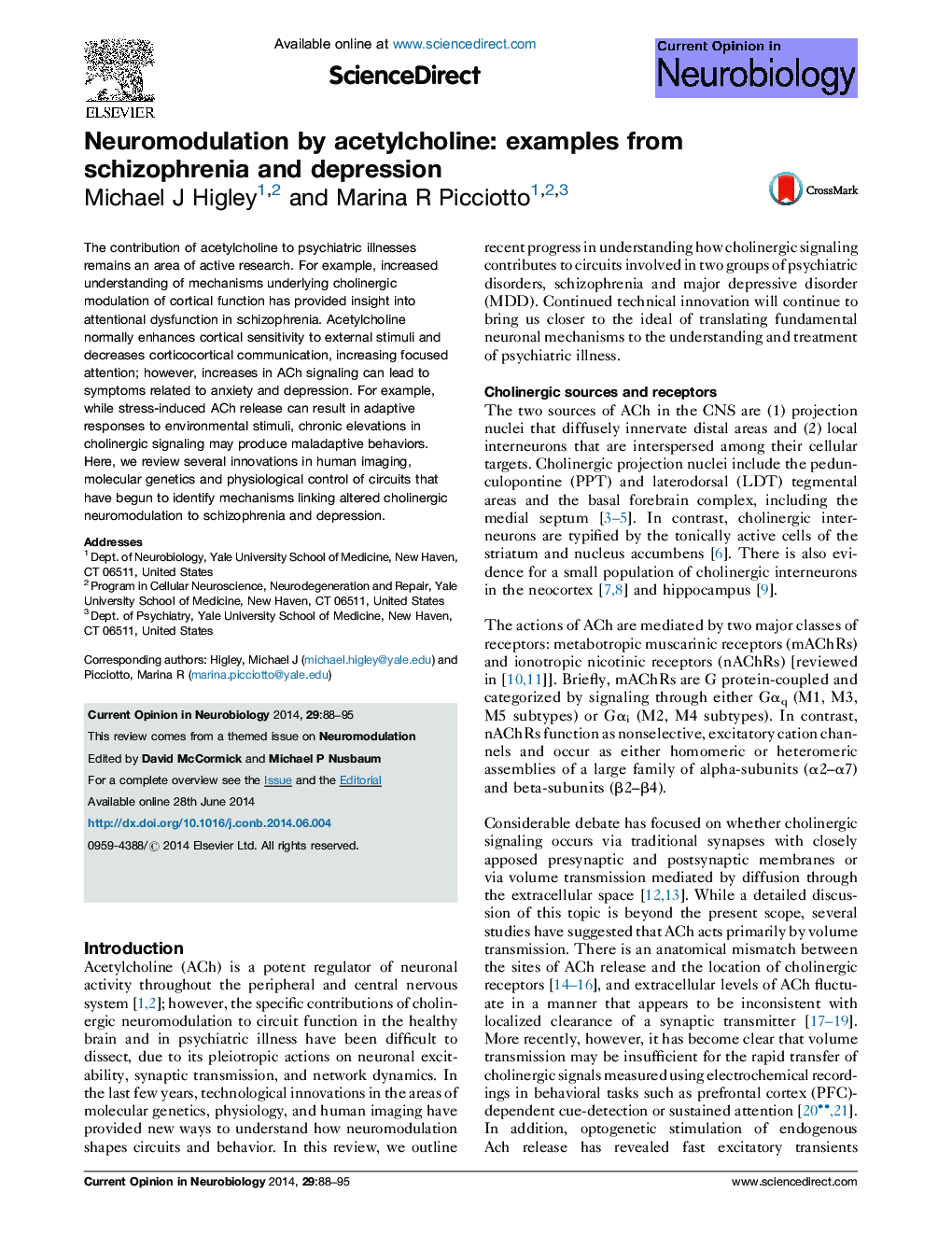| Article ID | Journal | Published Year | Pages | File Type |
|---|---|---|---|---|
| 4334199 | Current Opinion in Neurobiology | 2014 | 8 Pages |
•ACh boosts attention by enhancing sensory stimuli and decreasing cortico-cortical communication.•Increased ACh signaling can lead to symptoms of depression in humans and animal models.•Novel techniques have helped elucidate the role of ACh in schizophrenia and depression.
The contribution of acetylcholine to psychiatric illnesses remains an area of active research. For example, increased understanding of mechanisms underlying cholinergic modulation of cortical function has provided insight into attentional dysfunction in schizophrenia. Acetylcholine normally enhances cortical sensitivity to external stimuli and decreases corticocortical communication, increasing focused attention; however, increases in ACh signaling can lead to symptoms related to anxiety and depression. For example, while stress-induced ACh release can result in adaptive responses to environmental stimuli, chronic elevations in cholinergic signaling may produce maladaptive behaviors. Here, we review several innovations in human imaging, molecular genetics and physiological control of circuits that have begun to identify mechanisms linking altered cholinergic neuromodulation to schizophrenia and depression.
